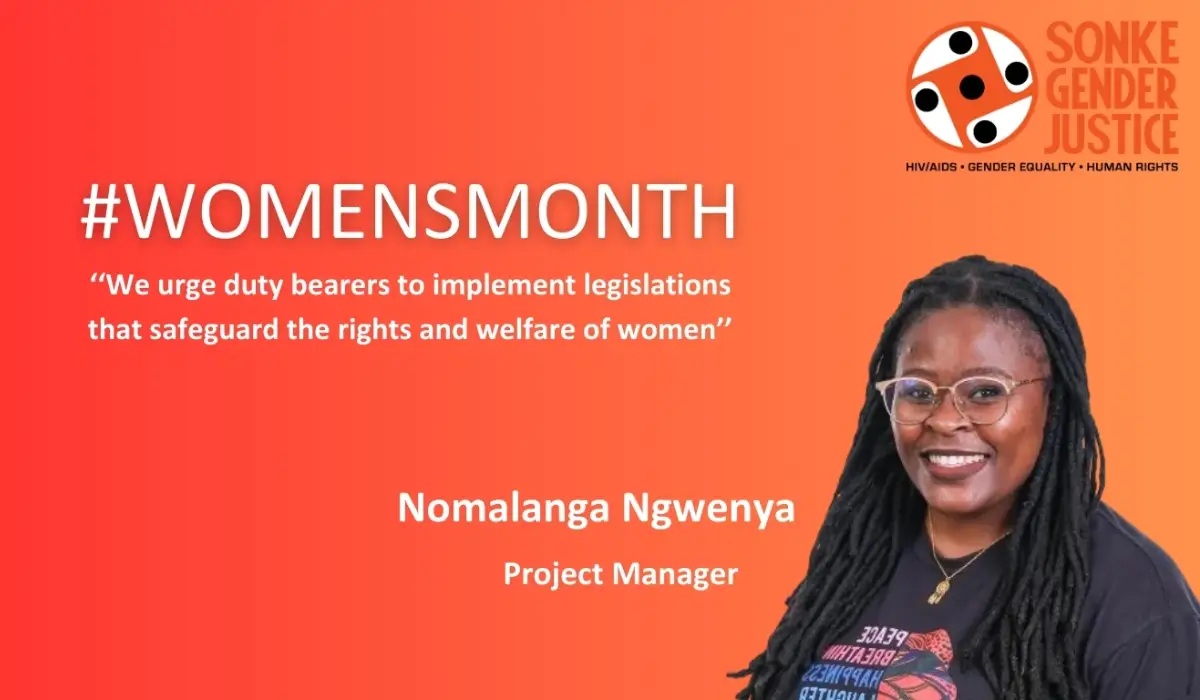South Africa marks Women’s month in August, a campaign whose objective is to recognise and celebrate contributions of women towards societal development and social change. This year the commemoration is under the theme “Celebrating 30 Years of Freedom Towards Women’s Development”, taking stock of progress made on socio-economic empowerment of women since the advent of democracy in the country. We speak to Nomalanga Ngwenya, Sonke’s Inkanyezi Project Manager in the Policy Development and Advocacy Unit based in Mpumalanga, who weighs in on the challenges women are facing in modern day society..
What challenges do you think women are grappling with in society today?
A significant issue exists in South Africa’s policy environment with regard to gender equality and gender-based violence. It is still very difficult to achieve full gender equality and to eradicate gender-based violence in this country, although there is substantial legislation addressing these problems, it is often not fully implemented.
One of the challenges in this regard is that those in positions of power and holding responsibility for implementing these policies often don’t know or understand them. Many duty barriers are still unaware of the changes, which keeps women as victims. Comprehensive education and awareness campaigns are essential to overcoming these obstacles and ensuring that these policies are transformative instruments that safeguard the rights and welfare of all South African women, not merely words on paper.
Because biases against women hinder their advancement, it’s critical to recognise and address the root causes, which include poverty, unfavourable cultural norms, and societal expectations. In order to combat these adverse practices, it is important to include and educate relevant institutions and systems, such as workplace, religious, traditional, and patriarchal structures. We can endeavour to create a society that is more just and equitable for all by tearing down these structures and advancing equality.
What do you define gender equality as?
Living in a society where women’s opinions are valued and they are not required to put in extra effort, speak up more, or do more to meet necessities for existence is what gender equality entails. It is a culture in which women are not burdened by social challenges, which undermines their capacity to make impactful contributions to society.
As feminists, how can we champion for the interests of women?
Nomalanga Ngwenya is a feminist, ALWAYS!
From a feminist standpoint, improving gender equality and combating gender-based violence in the nation necessitate taking a strategy that recognises the interdependence of diverse facets of society. This model underscores the interplay between interpersonal relationships, workplace environments, communities, and public policies, all of which impact women. Recognising this interconnectedness, we cannot effectively address one element without considering the others.
To champion the unique interests of women, we must avoid a one-size-fits-all approach and instead focus on context-specific solutions that target the root causes of gender inequality and gender-based violence. This necessitates adopting a woman-centered strategy that respects the knowledge and experiences women bring to the table. Moreover, recognizing the intersectionality of women’s identities is essential in creating inclusive spaces, particularly in workplaces.
What is your call to action this month?
Women have always been leaders in their own right! In order to create a more just and equitable society for everyone, we must demolish these structures and advance equality. We all have a role to play. ‘’Mabasebenze Abantu!’’








